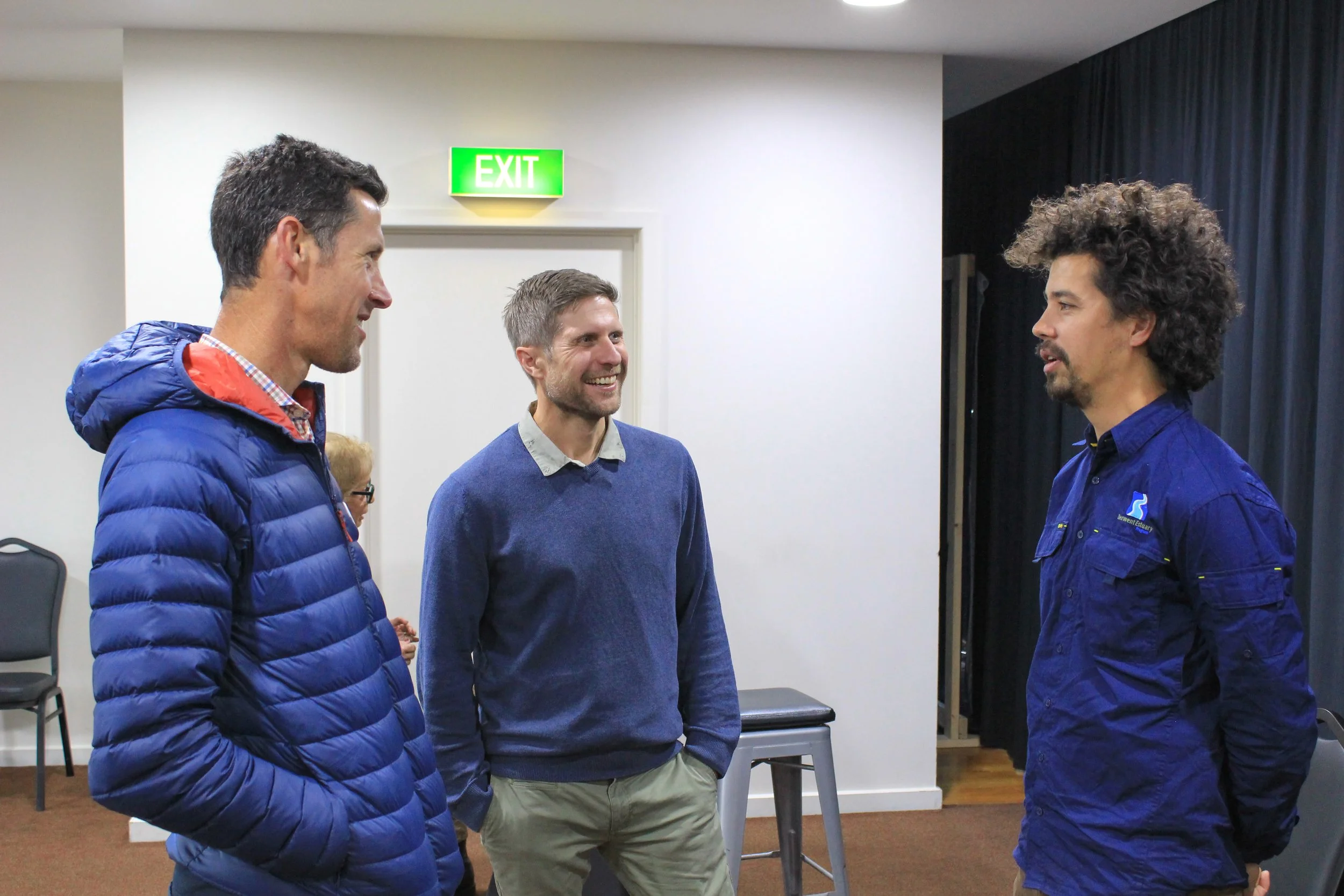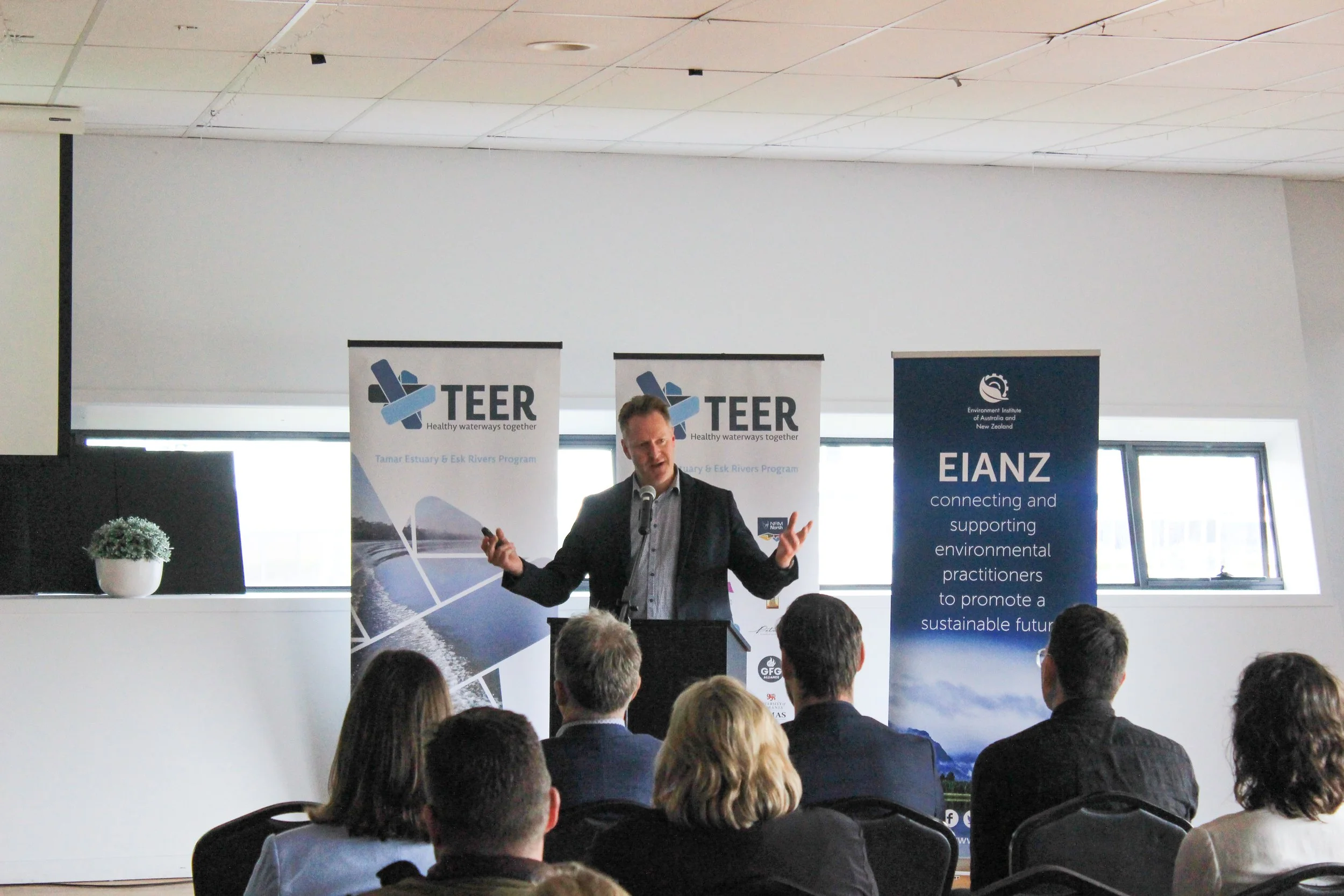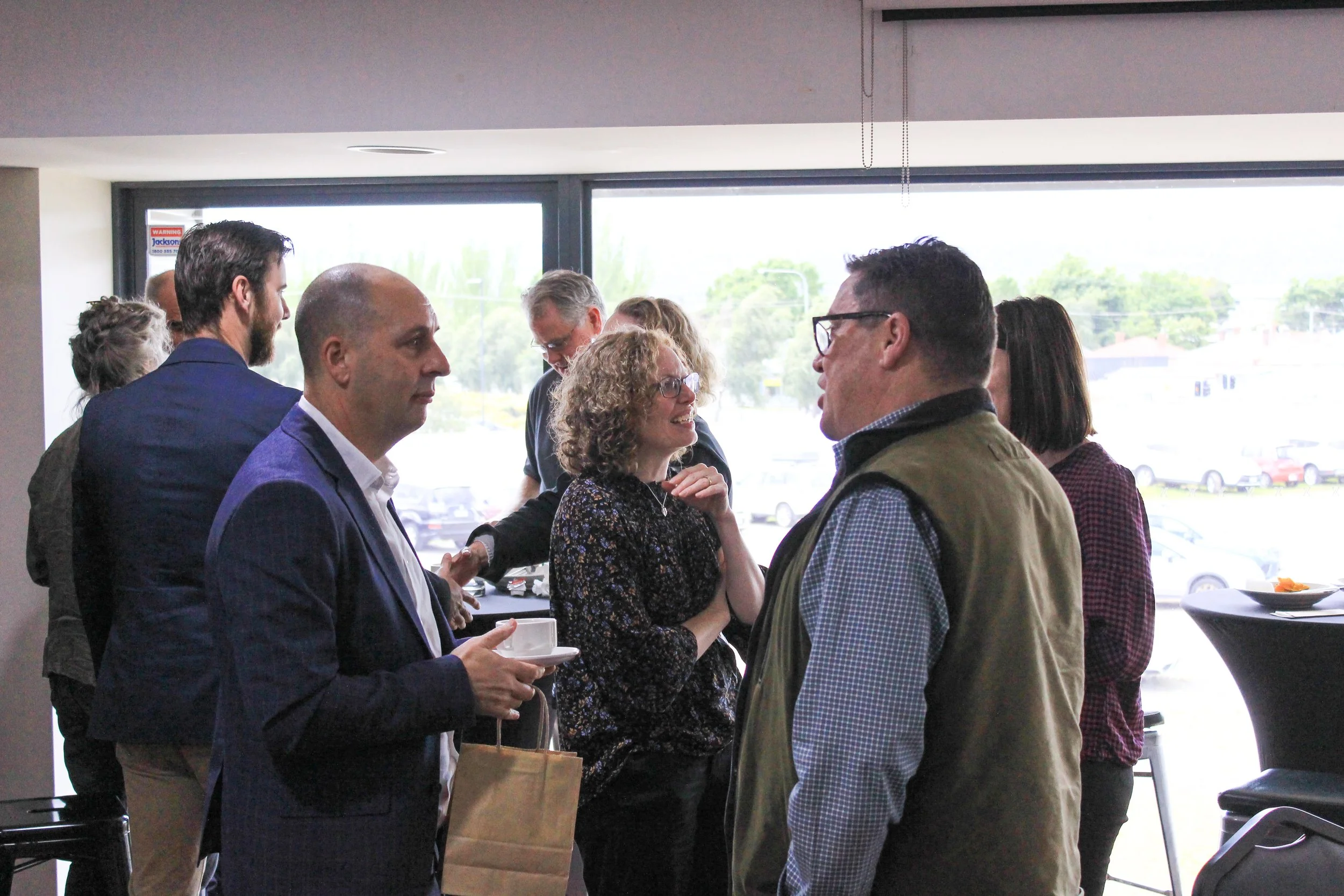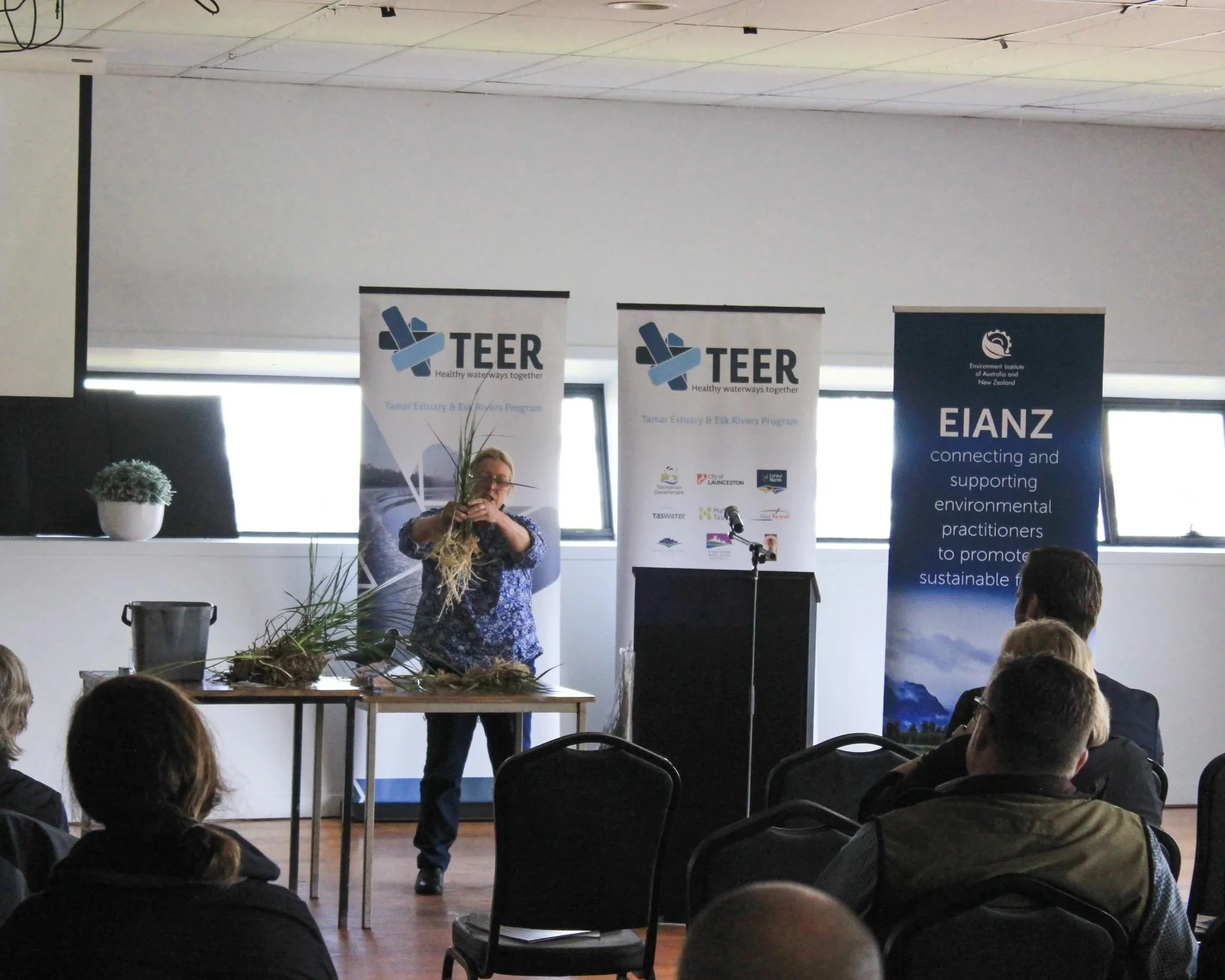
Kanamaluka / Tamar Forum
The biennial Kanamaluka / Tamar Forum brings together experts, decision-makers, and community members to share knowledge, research, and ideas about the health and future of our estuary. It’s a space for open discussion on science, management, and conservation, connecting people across sectors to work towards a shared vision for the Kanamaluka / Tamar estuary.
Past events - 2025
In October 2025, the TEER Program welcomed a sold-out crowd to the fifth biennial Kanamaluka / Tamar Forum at the Boathouse Centre, Launceston. The full-day event brought together cross-sector leaders and practitioner from across Tasmania under the theme "collaborating for a resilient Kanamaluka / Tamar" to explore the health and future of the estuary and its catchment.

Program
The 2025 program include four themed sessions:
Session 1 - Our connection to waterways highlighted how stakeholders in the Kanamaluka / Tamar estuary and Esk rivers system are working together to manage and invest in activities that protect, restore, and enhance our waterways. Ursula Taylor (CEO – Derwent Estuary Program) delivered the keynote address on regional partnership, sharing the Program’s perspective on collaborating to protect and sustain waterways as an integral part of our natural, cultural and economic heritage.
Session 2 - Investments for the future focused on strategic planning and practical on-ground works, showcasing master planning for the estuary, catchment-scale restoration, and ecological trials. Speakers illustrated how actions are enhancing the long-term health and resilience of the Kanamaluka / Tamar estuary.
Session 3 - Panel discussion featured a panel of thought leaders from council, industry, and the community, each actively working to protect and enhance the health of the Kanamaluka / Tamar estuary and Esk rivers catchment amid change and growth. The discussion explored how cross-sector collaboration is helping to navigate challenges, seize opportunities, and build resilient communities and healthy waterways, ensuring the Kanamaluka / Tamar remains a place where industry, community, and the environment can thrive.
Session 4 - Science for management included science-led insights to guide the management of estuarine and catchment systems. Presentations explored ecological changes, species trends, water use, and sustainable infrastructure, all contributing to evidence-based decision-making.
Acknowledgements
Aunty Nannette Shaw, a Tyereelore Elder from Tasmania, opened the forum with a Welcome to Country, followed by an official welcome from Minister Nick Duigan MLC.
More than 80 attendees participated in the event, which was made possible through the ongoing support of the Environment Institute of Australia and New Zealand.
The Forum was emceed by NRM North Operations Manager Jesse Webster (pictured) and Water Program Manager TEER Program Michael Murunga.


































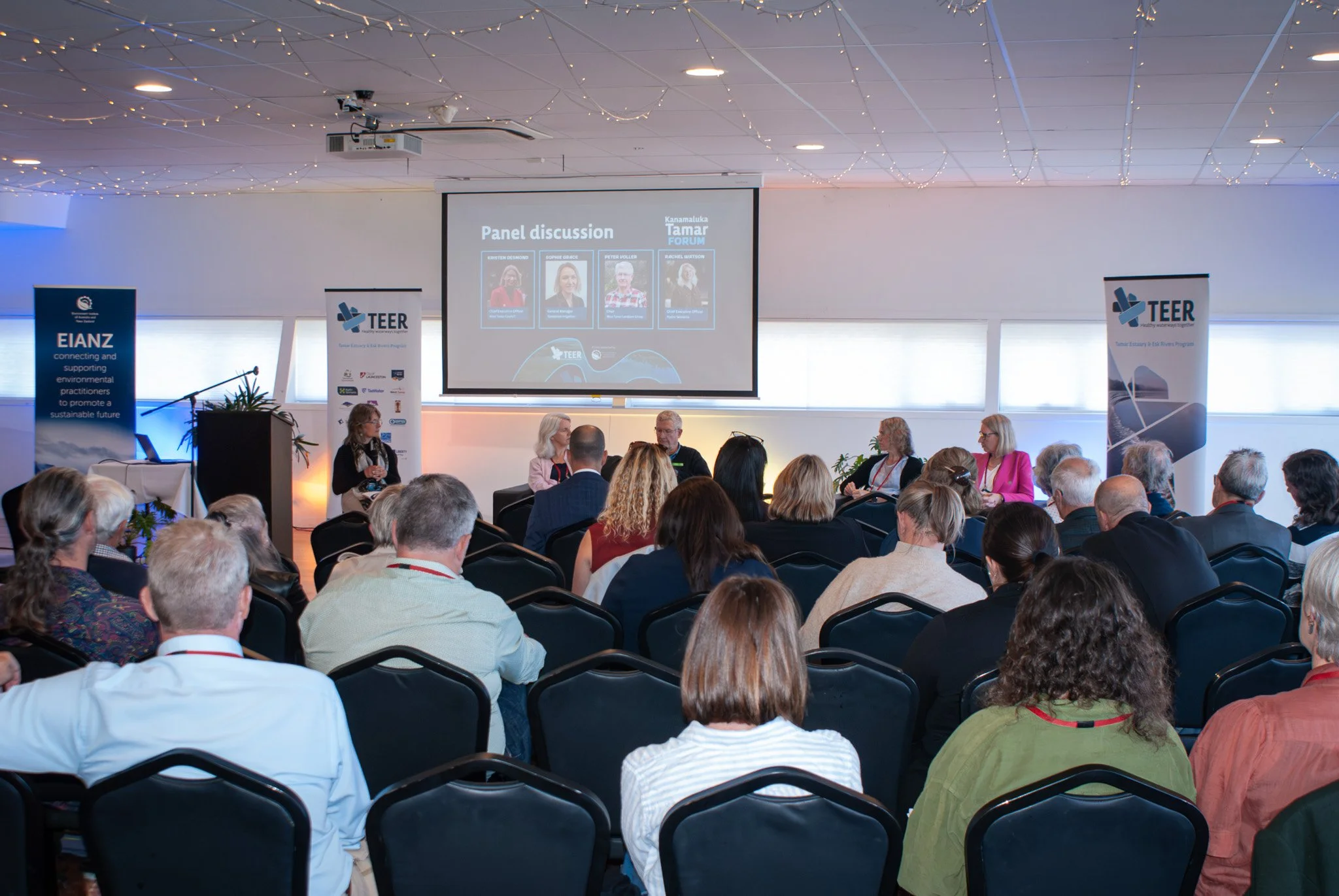
















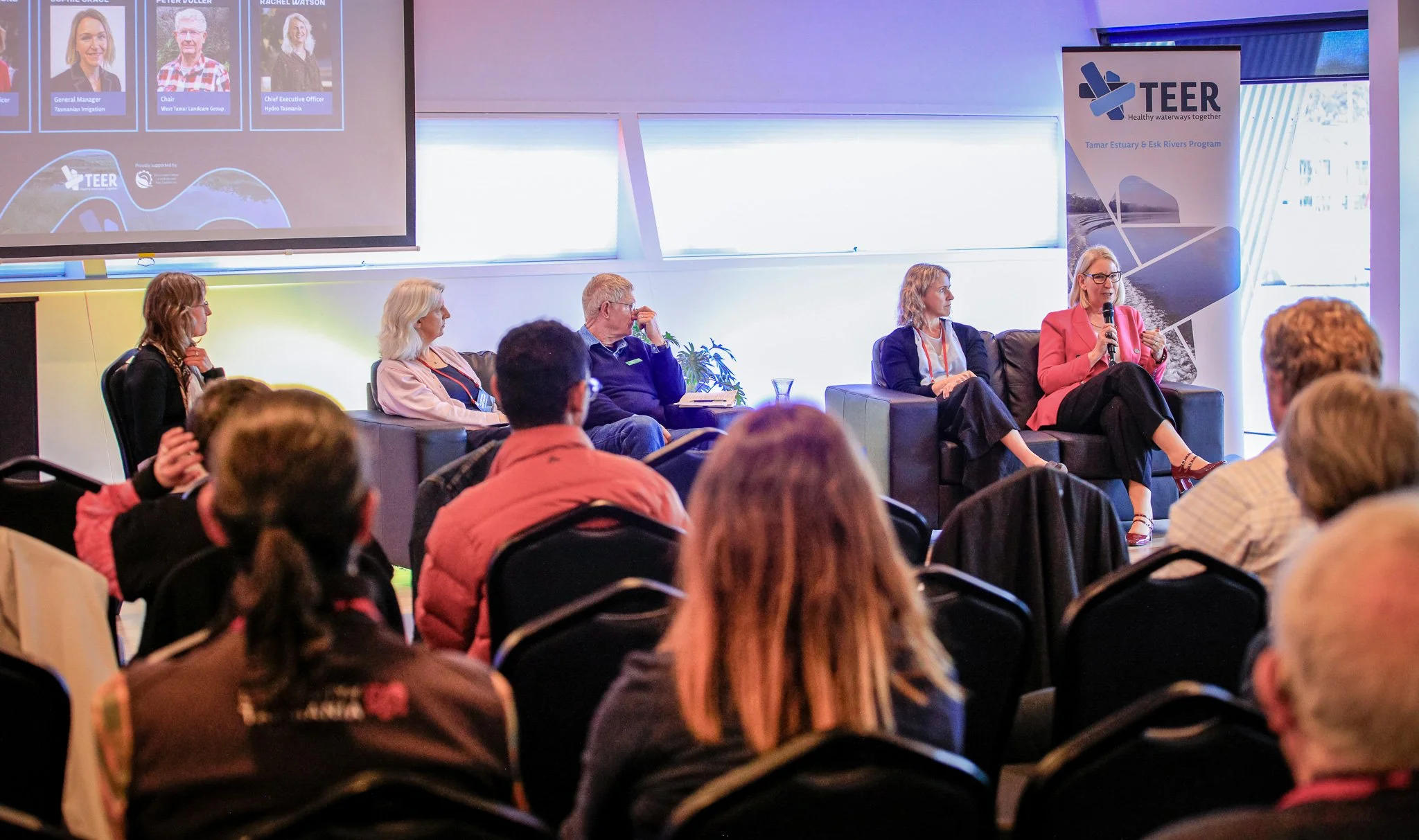







2023
The TEER Program hosted a sold-out fourth instalment of the biennial Kanamaluka / Tamar Forum in October 2023 at the Boathouse Centre on the bank of the North Esk River.
Presentations
The 2023 forum covered a broad range of topics including:
the health of Launceston’s urban waterways
tidal patterns in the estuary and sea level rise
progress in developing a green methanol production facility in Bell Bay
the 10-year Tamar Estuary Management Taskforce (TEMT) vision and implementation plan for the upper estuary
seagrass habitat restoration in Tasmania
improvements to Launceston’s combined system which manages flows of both sewage and storwater
wetland restoration success stories from the mainland Australia and Tasmania
progress in eradicating rice grass at Circular Head
an update on the health of waterways in the Esk rivers catchment.
Acknowledgements
The TEER Program was honoured to have Aunty Nannette Shaw, a Tyereelore Elder from Tasmania, provide the Welcome to Country and introduce the theme ‘Connections’. The forum also welcomed Minister Nick Duigan MLC and Janie Finlay MP among the more than 70 attendees. A post-event survey indicated the event was viewed as ‘excellent’ by attendees and the TEER Program would like to thank the Environment Institute of Australia and New Zealand for their continuing support of the event.




